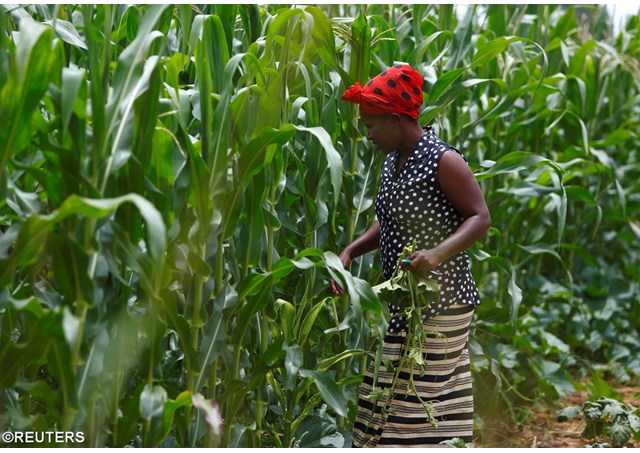
Climate change: Zambia encourages conservation farming

Zambia’s Agriculture and Livestock Minister, Given Lubinda has told Vatican Radio that the Zambian Government is encouraging farmers, especially small scale farmers, to venture into conservation farming. Lubinda says that conservation farming will not only enhance and improve food productivity in the country but is also a good way of mitigating against the impact of climate change. The Zambian minister, Given Lubinda, was speaking recently in an interview with Fr. Paul Samasumo at Vatican Radio in Rome.
“We have a programme called, “Scaling-up Conservation Farming” in which we are collaborating with the Food and Agriculture Organisation (FAO). We are getting some financial and technical support from FAO to boost conservation farming as one way of mitigating against the impact of climate change,” the Zambian minister said.
Lubinda says that Zambians are trying to be resilient in the face of climate change and its challenges to food productivity.
“This being the “Year of the Soil,” we are encouraging our Zambian farmers to take care of the soil. The impact of climate change is basically on the soil. When there is drought, it's the soil that is scorched by the Sun; when there are floods, it is the soil that is washed away,” He emphasised.
Conservation farming is a practice which aims to conserve soil and water by using surface cover or organic matter to minimise erosion and improve the conditions for plant growth. It involves planting crops directly into land by using minimum or no-tillage techniques.
Conventional "arable" agriculture is normally based on soil tillage. The most widely known tool for this operation is the plough. Soil tillage has in the past been associated with increased fertility. Soil tillage, however, leads in the long term to a reduction of soil organic matter. Soil organic matter not only provides nutrients for the crop, but it is also, above all else, a crucial element for the stabilisation of soil structure.
(e-mail: engafrica@vatiradio.va)
| All the contents on this site are copyrighted ©. |


